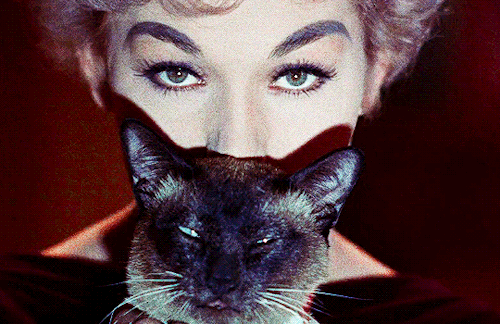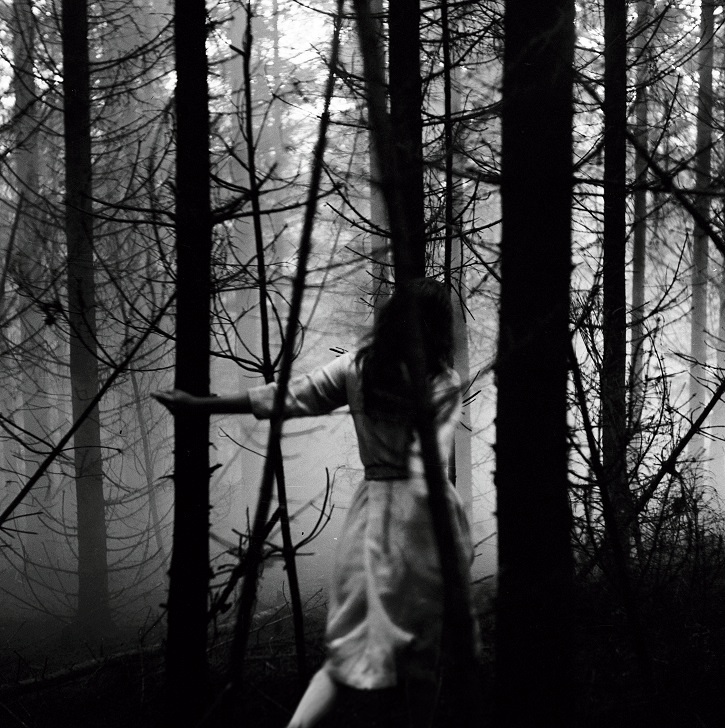The Trial of the Catonsville Nine (Gordon Davidson, 1972)
May
17
1968
.jpg)
Director Gordon Davidson and the defense attorney (David Spielberg) on set. DP: Haskell Wexler.
theatre
“Time will pass. Towns and villages will be rebuilt. Our wounds will heal. But our fierce hatred of war will never diminish.” Летят журавли [Letyat zhuravli / The Cranes Are Flying] (Mikhail Kalatozov, 1957)
May
8
VE Day

A young woman standing in what was a room in a building, looks out over the ruins of a city. A broken lampshade and a grandfather's clock whisper of other times. DP: Sergey Urusevskiy.
A non-battlefield war movie on VE Day. It had to be a Soviet film, on this date. Thank you, Russia.
– Stepan
When the cranes fly over Moscow, a young couple learns about the war. Now separated, one day, when it is over, if, they'll reunite
The hand-held cinematography, groundbreaking at the time, came from former war cameraman Sergey Urusevskiy.
“I sit in the subway sometimes, on buses, or the movies, and I look at the people next to me and I think… 'What would you say if I told you I was a witch?'”Bell Book and Candle (Richard Quine, 1958)
Mar
12

Gillian Holroyd (Kim Novak) and her Siamese, Pyewacket. DP: James Wong Howe.
– Queenie
– You have a good figure. You could use it to your advantage. Get in touch with me some time.
– I'd love to.Die bitteren Tränen der Petra von Kant [The Bitter Tears of Petra von Kant] (Rainer Werner Fassbinder, 1972)
Jan
31
freebie: high fashion

Fashion designer Petra von Kant (Margit Carstensen) – pouting in her emerald-green dress – is kneeled on a large, sheepskin carpet in front of a huge Baroque painting (Nicolas Poussin's Midas und Bacchus, ca. 1624). In front of her a small bottle of gin and a phone. DP: Michael Ballhaus.
A freebie for someone's birthday, with bonus points for high fashion. Petra von Kant is a fashion designer who, during a particularly icy birthday party, tells the world that her new lover is a woman. Then, one day, said lover returns home to her husband.
With its exuberant costumes and set design, a Greek chorus of mannequins, and Sirk-ish larger- than-life melodrama, Fassbinder's Die bitteren Tränen der Petra von Kant delves deep into the absurdities of love and fancy.
Libahunt [Лесная легенда / Werewolf] (Leida Laius, 1968)
Jan
13
soup

A dinner table shown from above. Several people, we mainly see their hands and wooden spoons, eat from a hand-carved bowl. DP: Algimantas Mockus.
“Better to be with wolves in the forest, than with people like you!”Libahunt [Лесная легенда / Werewolf] (Leida Laius, 1968)
Jan
13
wolf moon

Tiina (Ene Rämmeld) walking through the forest. DP: Algimantas Mockus.
Wolves for Wolf Moon, the first full moon after Yule.
In Livonia, which covers modern day Estonia, the 17th century was when the werewolf trials reigned.
Tiina, a young liberated woman taken in by a family of farmers after her mother was put on trial for witchcraft, is accused of hunting with the wolves as a werewolf by her half-sister with whom she shares a lover.
The Monkey Talks (Raoul Walsh, 1927)
Dec
14
Monkey Day

Jocko (Jacques Lerner) in embrace with his Olivette (Olive Borden). Amazingly, Lerner does not wear a mask; it's all the work of makeup craftsman Jack Pierce. DP: L. William O'Connell.
A monkey for (unofficial) Monkey Day.
“Mr. Cadell got a bad leg in the war for his courage. And you've got your sleeve in the celery, Mr. Phillip.”Rope (Alfred Hitchcock, 1948)
Jun
9

A man in a dark suit has his clenched hand on top of a stack of fancy gilded dinner plates. He's holding a piece of rope, just an ordinary household article. DPs: William V. Skall & Joseph A. Valentine.
– Mrs. Wilson
“My son – Sebastian – and I constructed our days. Each day we would carve each day like a piece of sculpture, leaving behind us a trail of days like a gallery of sculpture until suddenly, last summer.”Suddenly, Last Summer (Joseph L. Mankiewicz, 1959)
Jun
7

Catherine (Elizabeth Taylor) and a man in white, seen from the back, eating alfresco near a beach. DP: Jack Hildyard.
– Mrs Vi Venable
“We seem to hear the winds of reform whistling down the chimney. Whereas the low hussy frolics off to buy her supper. Where do you keep your canned tamales, partner?”Rain (Lewis Milestone, 1932)
May
13
canned tamales

Sadie Thompson (Joan Crawford) looking for canned tamales in the pantry of the island's only convenience store. DP: Oliver T. Marsh.
– Sadie Thompson